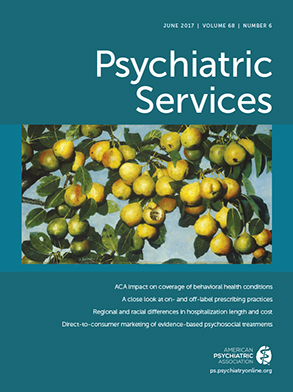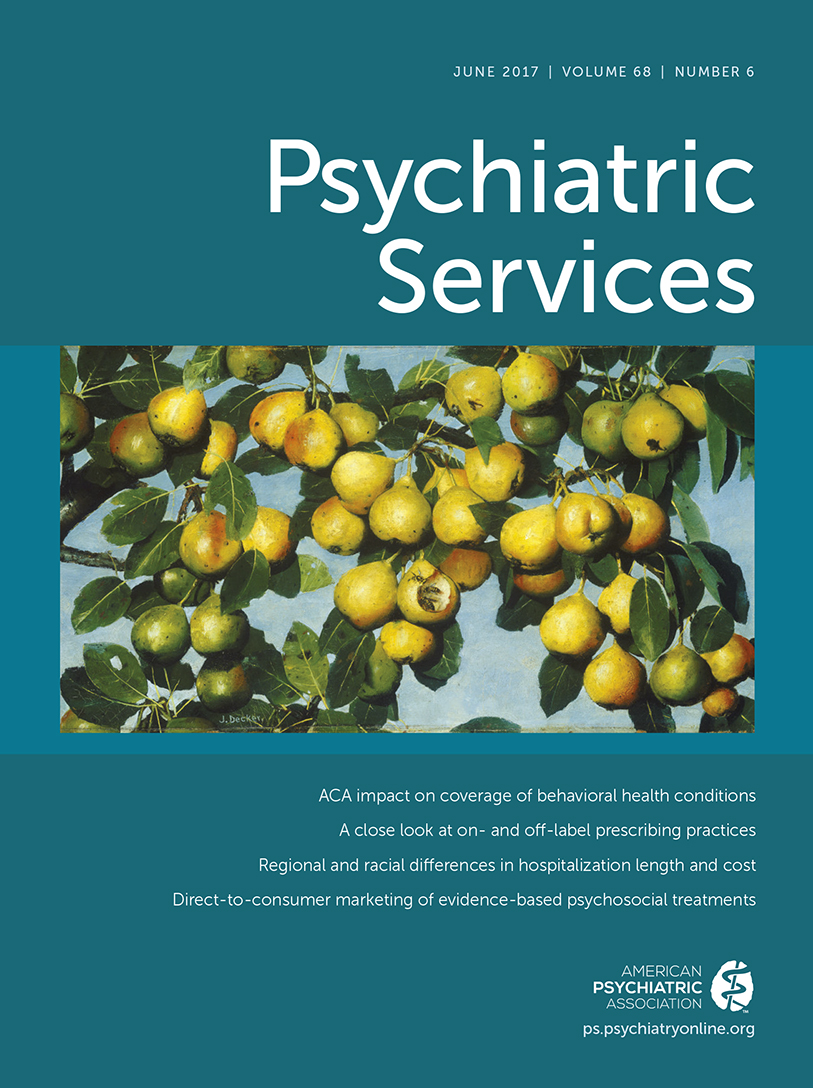TO THE EDITOR: In a letter to the editor of
Psychiatric Services (
1), some members of the senior Yale Psychiatry faculty viewed the analyses I offer in “Perhaps I Touched the Minaret, or How Patient-Centered Care Remains a Dream” (
2) as driven by “defeat,” “despair,” “discouragement,” and “disillusionment” (
1). Their only reference to the analyses was the “unfortunate” citing of 1960s programs as “evidence that public psychiatry has declined.” I still take my later failures to replicate this 1960s collaboration with the Texas Department of Rehabilitation as such evidence (
3). The state-sponsored training resulted in full-time, continuous competitive employment of multiple chronically hospitalized patients. In contrast, a recent benchmark for employment success was 41% working at least one day within a three-month period. I leave it to readers to decide whether competitive employment opportunities for people with severe mental illness have declined.
The Yale critics go on to cite “tremendous progress . . . in recent years” (
1). One example they provide is “jail diversion” at Yale (
1). In the years up to 1997, when I retired from academia, I worked in no community or department where we allowed people with a mental illness to be sent to jails. For example, the Springfield, Illinois, police routinely called our 24-hour on-call case manager or Community Support Network office. A typical request was, “We have someone who we think is your client, and if she isn’t, she should be. Will you come?” We went to the site and took responsibility if the person was our client or mentally ill (
4).
The Yale critics reported participation in the Connecticut jail diversion program. Has diversion met the needs of New Haven’s citizens who have psychiatric illness? In 2015, Supervisory Assistant Public Defender Bevin Salmon, who works at the New Haven Superior Court, said “I’ve been doing this for about 13 years, and . . . to see [my] mentally ill clients incarcerated because there aren’t enough treatment spots for them . . . has been a constant problem” (
5).
The state of social and community psychiatry truly disappoints me (
2), and reports from academia provide no reassurances. Contrary to the Yale critics’ speculations, as I said in my Personal Accounts column (
2), I remain gratified by my work and by the patients I have helped and who have taught me medicine. I have learned from them that we cannot depend on all patients’ coming to our offices. Psychiatrists have pioneered prevention programs to identify vulnerable people with severe mental illness who are living in community settings and to provide active care over time to improve their well-being. Programmatic prevention can be used to reduce police encounters and the need for diversion. Two elements are important in this effort. First, interventions in the community can address functional impairments and disabilities of people with severe mental illness: homelessness, unemployment, substance abuse, encounters with police, and so forth. Second, collaborative arrangements can provide on-site mental health workers to intervene when police are concerned about a client or nonclient with mental illness.
By understanding our patients, we become experts in the tailoring of medicine and environments to protect and restore health to individuals. By having all medical students and psychiatric residents master the skills of preventive interventions, home visits, agency collaborations that concern a patient, and on-site home or work supervision to ensure that patients take their prescribed medications, we take an important step toward overcoming today’s adversities.

